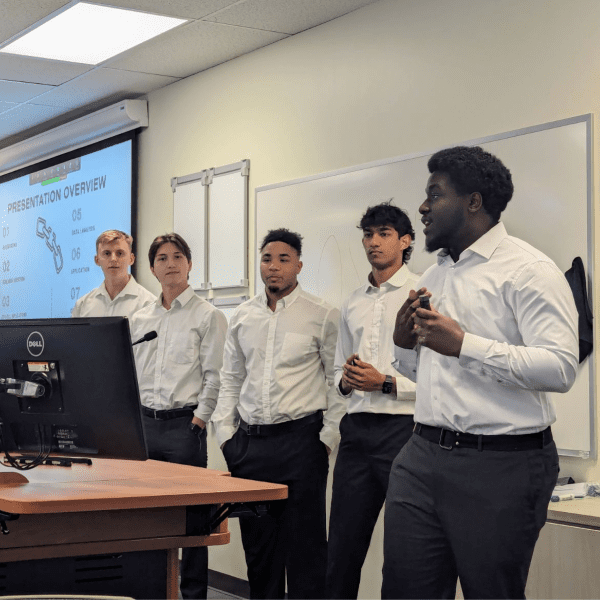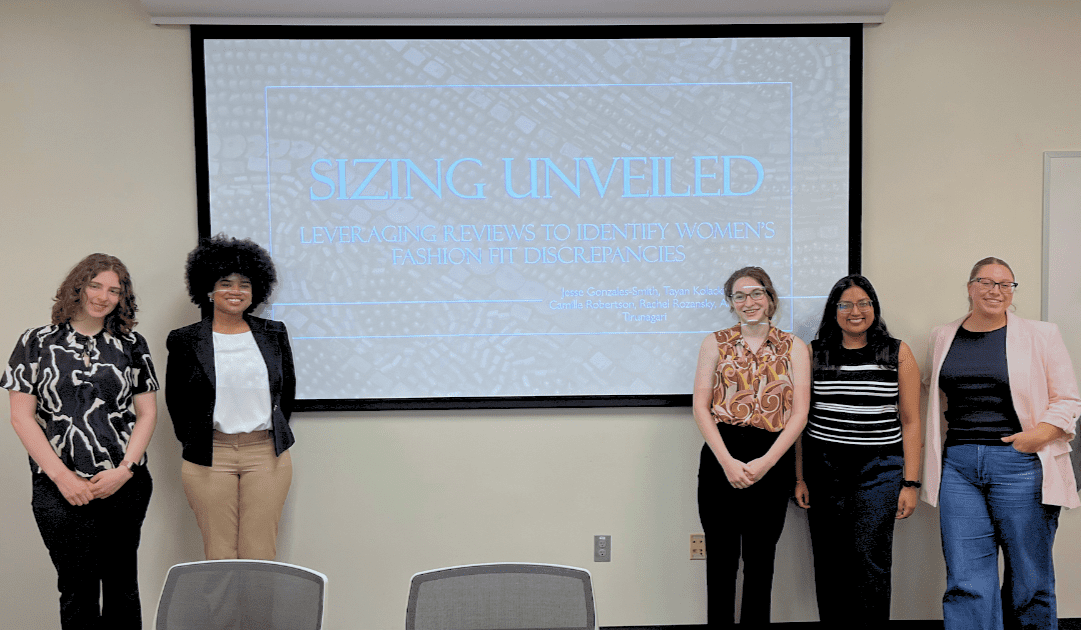Harnessing Data Science for Social Good: Addressing Global Challenges

In an era where data reigns supreme, its applications extend far beyond business and technology. Dr. Mirsad Hadzikadic‘s class “Data Science for Social Good” at UNC Charlotte stands as a testament to the transformative power of data analytics in tackling some of society’s most pressing issues. Through innovative approaches and interdisciplinary collaboration, students are leveraging data to drive positive change across various domains, from human trafficking to sports injury prevention. Students in Dr. Hadzikadic’s class showcased innovative solutions and interdisciplinary collaboration in their end of semester presentations. Here’s a glimpse into a few of the projects and the dedicated group members behind them:
Human Trafficking: Predicting and Preventing Exploitation
Human trafficking stands as a grave global concern with intricate distribution chains spanning borders, making it one of the largest illicit industries worldwide. To combat this, one group in the class focused on building predictive models such as decision trees to anticipate the destination of victims based on demographic and geographic features. By understanding patterns and risk factors, authorities can proactively intervene and disrupt trafficking networks, potentially saving countless lives.
Presenters: Aavanth Ezhilan, Titus Ford, Trey Hall, Derrick Mayall, Jackson Stevens
Women’s Empowerment & Health: Breaking Taboos with Data
In another initiative, students dove into the realm of women’s empowerment and health, specifically addressing menstrual health. Through surveys and data analysis among the student population, they aimed to uncover factors influencing menstrual knowledge. If given more time, they would expand the data set to achieve greater representation beyond the student population. Armed with insights, they can now devise strategies to enhance awareness and education, ultimately promoting gender equality and improved health outcomes.
Presenters: Annie Illing, Mary Margaret Lewis, Vidhi Shah, Keerthi Talluri
Food Insecurity: Targeted Interventions through Data Clustering
Food insecurity affects communities across North Carolina, with localized challenges demanding tailored solutions. By employing clustering techniques, students categorized vulnerable counties based on various socio-economic indicators. This understanding allows for targeted interventions and resource allocation, maximizing impact where it’s needed most and fostering food security for all.
Presenters: Mahmoud Alhousseiny, Tacoma Jones, Mason Keziah, Gray Lumsden
Body Image and Women’s Clothing: Redefining Fashion Standards

The fashion industry grapples with fit inconsistencies, perpetuating unrealistic body standards and dissatisfaction among consumers. Through data-driven analysis of online reviews, students in this group aimed to categorize different fit issues experienced across brands and clothing types. With this knowledge, stakeholders can work towards inclusive sizing standards, promoting body positivity and enhancing consumer satisfaction.
Presenters: Tayan Kolacki, Jesse Gonzales-Smith, Rachel Rozansky, Anvi Tirunagari, Camille Robertson
Sports Injury Prediction & Prevention: Safeguarding Athletes with Data
In the realm of sports, injuries are an unfortunate reality, with soccer players facing significant risks. To help address this, students developed models to identify key factors contributing to injuries and predicted their occurrence. Armed with insights into injury sources, soccer teams can implement targeted prevention strategies and make informed decisions to safeguard their athletes’ well-being.
Presenters: Issam Abulhuda, Matt D’Allaird, Connor Harte, Saroj Upreti, Anjali Jutla
Conclusion: Empowering Change Through Data
From combating human trafficking to promoting women’s health and enhancing sports safety, the applications of data science for social good are endless. Dr. Mirsad Hadzikadic’s class exemplified the power of collaboration and innovation in leveraging data to address complex societal challenges. As these initiatives demonstrate, by harnessing the power of data, we can drive meaningful change and create a better world for all.